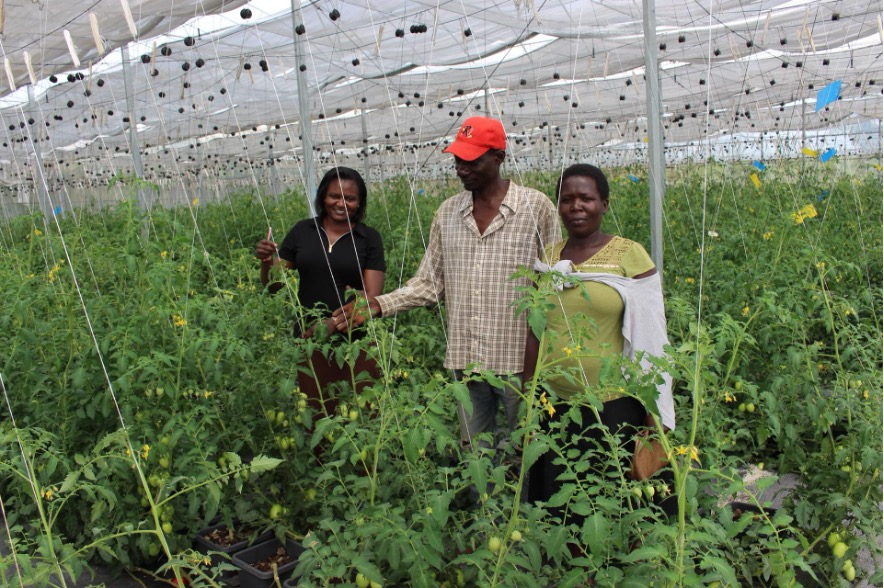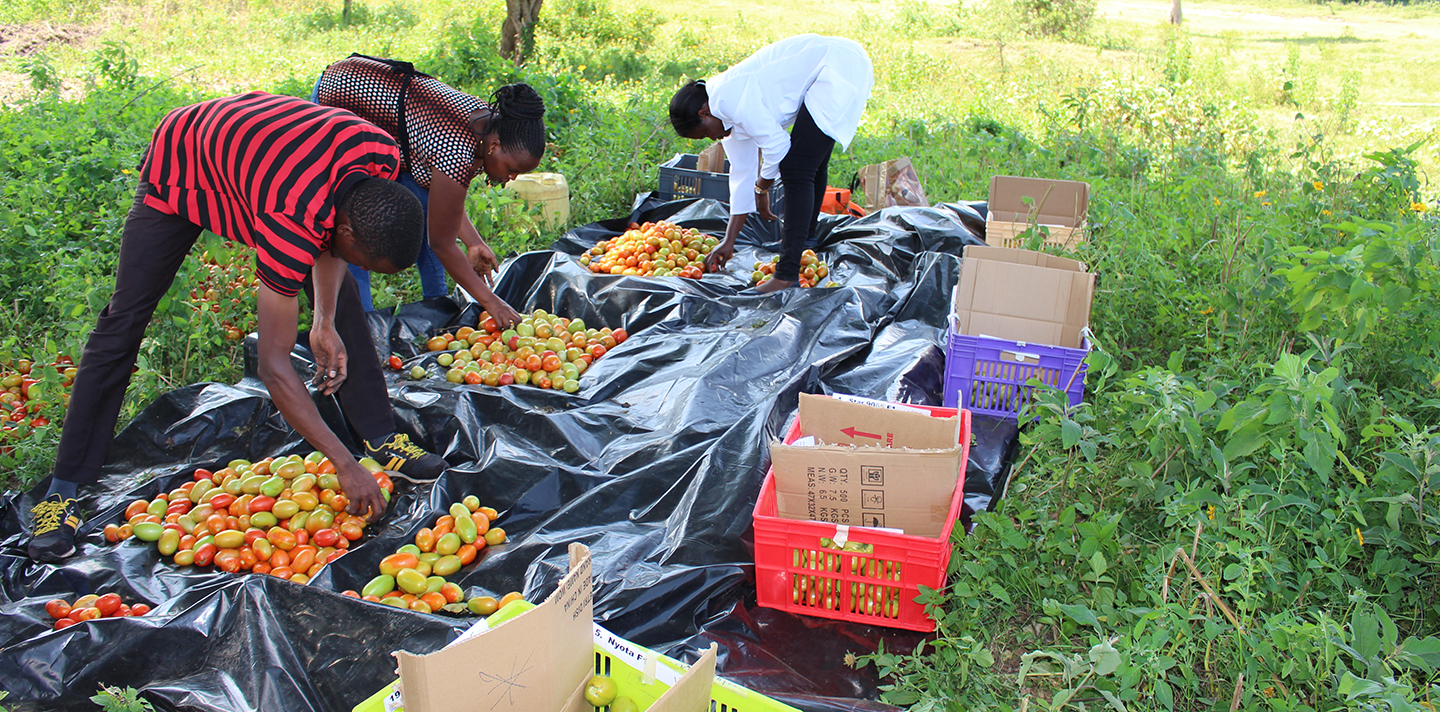
The fresh fruit and vegetable industry is crucial in its ability to generate revenue and improve livelihoods of small-scale producers in Kenya. Although this capacity is understood, a comprehensive understanding of the unique benefits of a short horticulture value chain (two or less intermediaries) and long value chains (three or more) is lacking. Furthermore, known as the Silicon Savannah, Kenya is home to a significant amount of digital applications or information communication technologies (ICT), but their impact on stakeholders in the horticulture value chain is minimal. A better understanding of these value chains, and the use of ICTs, is critical for informing where resources are best applied to achieve objectives.
This project is led by Professor Willis Owino and team from Jomo Kenyatta University of Agriculture and Technology (JKUAT) and co-investigated by a colleague from GROOTS Kenya will research the nutritional, economical, and social (gender equity and youth engagement) impacts on producers along both short and long value chains of banana, mango, tomato, kales, cowpeas and African nightshade, and, determine to what extent are ICTs incorporated and what are their benefits and or impacts. These six fruit and vegetable value chains in to be researched in six counties in Kenya were selected based on production and economic importance
The project team will start by: 1) reviewing existing literature on value chain lengths; 2) conducting rapid market appraisals; and, 3) in-depth qualitative exploration using focus group discussions and key informant interviews to validate chosen indicators. A survey will be administered to a total of 960 producer respondents, with a minimum of 160 participants from each of the six chosen value chains, utilizing custom survey tools. The study will employ empirical modeling techniques to evaluate the impact of value chain length, and assess the influence of ICTs on potential nutrition, economic, and social outcomes within these value chains.
The study expects to establish the impacts of long and short value chains on nutrition, economic and social outcomes, and enhance the understanding of the level of penetration and utilization of ICT in the selected value chains. These outputs will identify suitable horticulture access pathways that increase stability in markets and increase value chain efficiencies; document the enabling environments and key characteristics that facilitate positive aspects of access pathways and establish how access pathways can either marginalize or empower vulnerable groups. Researchers will leverage the linkage between ICT, and fruit and vegetables value chains – their trade-offs and synergies, to recommend conclusive policies to promote ICT adoption. Long term results include the expectancy for enhanced capacity and resilience of value chain actors.

